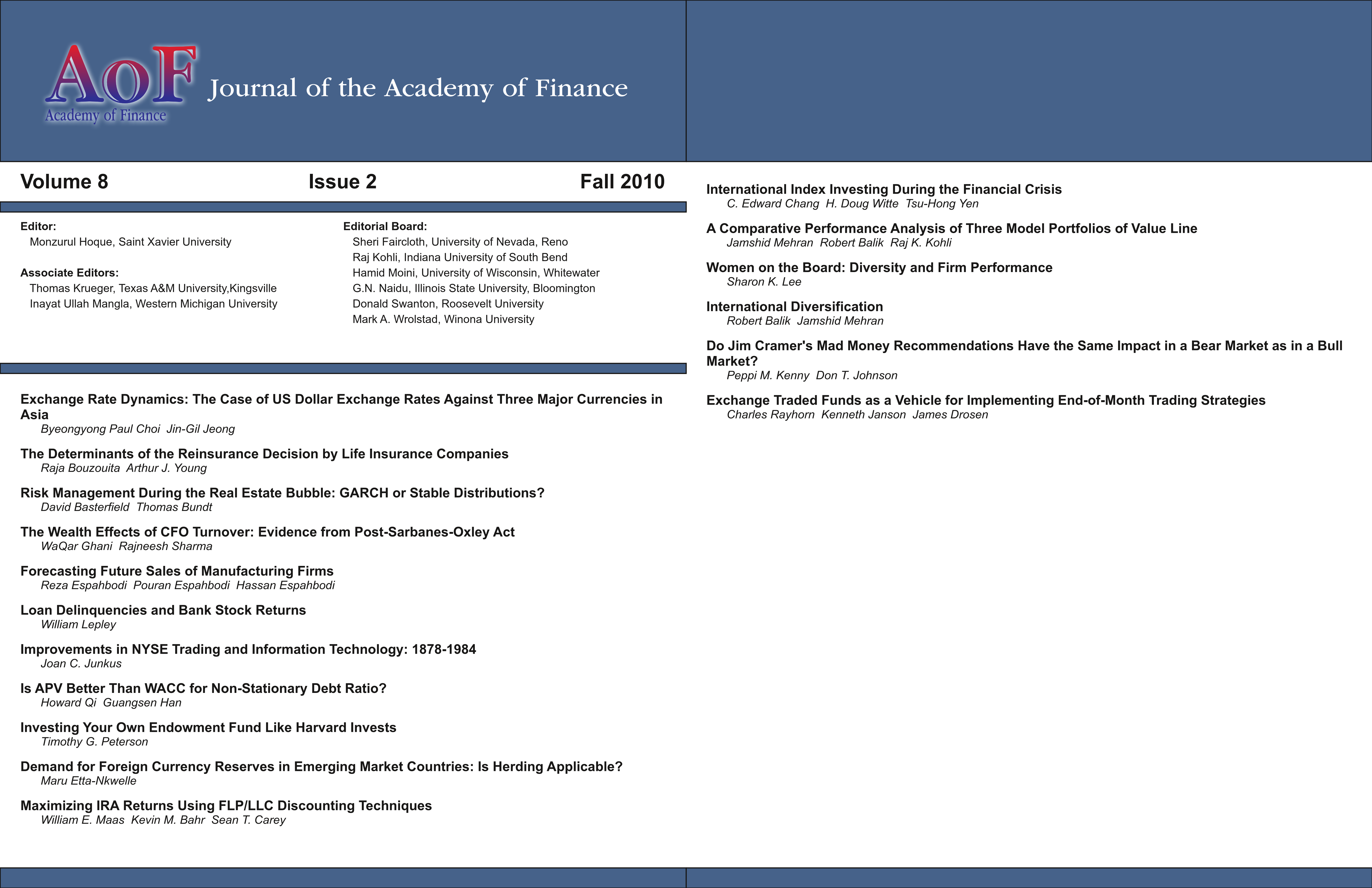Demand for Foreign Currency Reserves in Emerging Market Countries: Is Herding Applicable?
DOI:
https://doi.org/10.58886/jfi.v8i2.2335Abstract
This paper examines the possibility of herding behavior in the demand for foreign currency reserves in 90 emerging market countries. A cross sectional absolute deviation model is utilized to detect herding by examining the volatility in the growth rates in reserves in the individual countries compared to the regional average. In addition, for comparison purposes, a contemporary model is utilized to measure the magnitude of herding. In general the results of the herding detection model exhibit herding behavior amongst Asian and Latin American and Caribbean countries, but not in Africa. Interestingly, the Asian countries show a greater tendency to herd than Latin American countries and Africa. We also observe that countries with greater monetary policy autonomy have a greater tendency to herd, while countries that belong to monetary unions are less likely to herd.





